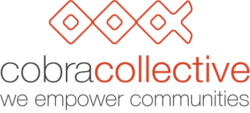Sharing experiences and developing action plans
Between the 8-11 July 2015, more than 60 Indigenous, institutional and academic representatives from Venezuela, Brazil, Guyana and the UK came together at the Estación Científica Parupa, with the support of the Comunidad Indígena Kavanayén, Gran Sabana, Venezuela.
 This first meeting of the Participatory and Intercultural Fire Management Network aimed at exploring ‘community owned’ Indigenous fire management i.e. fire management practices that emerge out of the traditional wisdom and experiences of Indigenous communities themselves. More specifically, the meeting aspired to:
This first meeting of the Participatory and Intercultural Fire Management Network aimed at exploring ‘community owned’ Indigenous fire management i.e. fire management practices that emerge out of the traditional wisdom and experiences of Indigenous communities themselves. More specifically, the meeting aspired to:
- Share experiences and lessons on the needs and constraints of Indigenous community owned fire management;
- To develop a shared discourse on how Indigenous community owned fire management could be supported and strengthened, and;
- To develop action plans to take forward.
On the first day, presentations were made by the project leaders, Bibiana Bilbao and Jay Mistry, on the current state of Indigenous fire management in terms of practice and policy. Representatives of all the organisations present then made introductions in which they outlined their position and current work on fire management. Over the next two days, participants worked in country groups and explored their current situation in terms of Indigenous fire management and their future, envisaged objectives. Using small group discussions, participatory drawing and whole group reflections, the groups then devised action plans that could be taken forward over the next two years. The meeting ended with the formal launch of The ‘Participatory and Intercultural Fire Management Network’ which will comprise the Indigenous communities, governmental agencies and academic institutions from Venezuela, Brazil and Guyana with a stake in fire management. One of the first outputs of the network was a joint declaration in support of Indigenous fire management:
“We, members of the Participatory and Intercultural Fire Management Network, believe that Indigenous fire management must be integrated into the management of the territories in which Indigenous people live and make their livelihoods, using ancestral, traditional and adaptive Indigenous fire knowledge supported by scientific/academic and institutional partners.
- Respect Indigenous fire management practices and knowledge.
- Promote the empowerment of Indigenous communities and their active participation in decision making, and allow communities more autonomy with respect to policies, including the use of funds for fire management.
- Encourage institutions to support national and international funding for Indigenous fire management, for example to reduce deforestation and limit carbon emissions.
- Promote the use of visual modes of communication for raising awareness and reinforcing traditional fire practices”.

 On the last day of the meeting, all the participants went to visit Salto Aponguao, a sacred waterfall of the Indigenous Pemon people, and to the village of Kavanayén where they were warmly received by the Captain and village leaders.
On the last day of the meeting, all the participants went to visit Salto Aponguao, a sacred waterfall of the Indigenous Pemon people, and to the village of Kavanayén where they were warmly received by the Captain and village leaders.
An account of the meeting in the Venezuelan media can be found here: bit.ly/1LHvUcI
Over the next few months we will be writing up the report of the meeting, starting to implement the action plans, presenting a working paper on Indigenous fire management to the Network and facilitating participatory video projects with Indigenous researchers in Venezuela, Brazil and Guyana.
